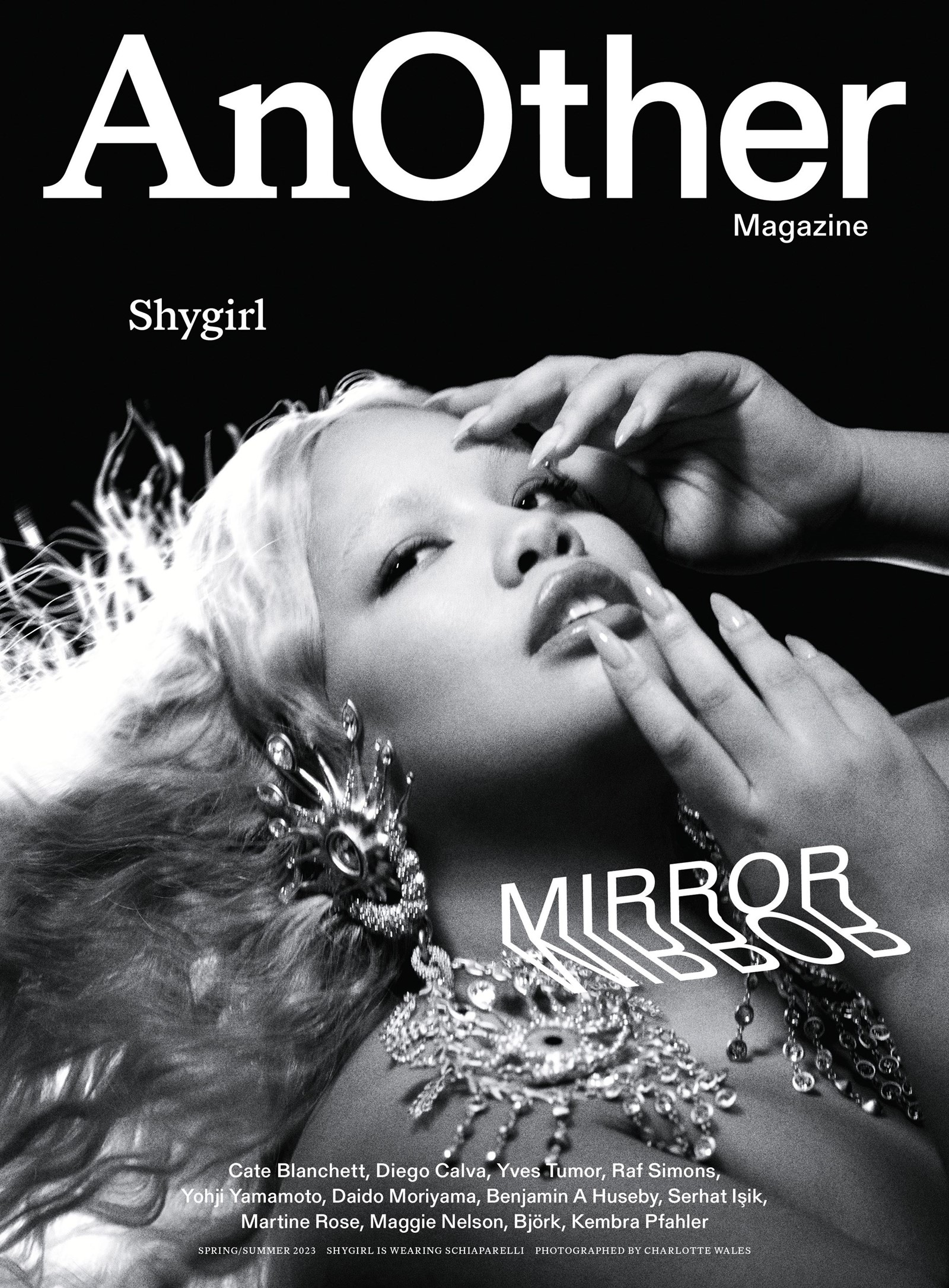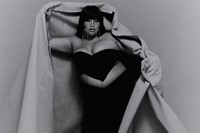This article is taken from the Spring/Summer 2023 issue of AnOther Magazine:
Björk: I’m so honoured to be doing this because I’m extremely excited to know you as a musician, performer and maker of things in this world.
Shygirl: I remember after we were first introduced by Arca via email, pre-Covid, I drunkenly messaged you one night and told you about my own relationship with your music, how my dad had given me the Hunter single. Or at least it was a single for me because I listened to that song on repeat. He was running nights at a club and people would leave CDs behind, so he would bring them to me to play on my Walkman. Hunter was my soundscape for a period. I always listened to music thinking I was in my own music video – or when I was reading, for atmosphere. I felt like my dad was sending me messages in the music – about his own sentimentality, emotions and vulnerability. That was very precious to me, looking back, this hench, 6ft 4in Black guy sending me Björk, Róisín Murphy and Destiny’s Child – like he was making space for emotional women.
B: And then, when we first met in person, you showed me an amazing part of Soho, which was great because I was there a lot in the Nineties, but it had been a while.
S: The dinner with Sega [Bodega] was at this place where there were live acts like sword-swallowers every few minutes. I didn’t realise it was going to be that eventful, even though I picked the location – it helped break the ice.
B: And then I was thrilled because when I said, “Where’s the best place to go now?” you were like, “Let’s just go home and DJ for each other” – which always ends up being the best choice. It’s such a musician thing when you have had people playing music half of the evening and then you get a bit tipsy and bossyboots and want to control it, to listen to what you want.
S: I think we both DJ in a similar way – something about selecting and genre-blending, playing what we love in a playful way. We just appreciate music, and DJing is an outlet for that.
B: I agree. I have been proudly calling myself the David Attenborough of DJs. I’m more like a musicologist – “I want to show you the little ant over here.” I’ll go from a Malaysian R&B track to a classical tune from upstate New York to some filthy trap songs from Paris. I like having them one after the other because each song becomes more itself.
S: I think that’s where that label ‘futurism’ comes from, breaking those rules.
B: BB is one of my favourites of your songs. What genre is that? Neuro trap?
S: It’s got garage influences as well. I love when people ask me what genre the music is because that’s the last thing I think about.
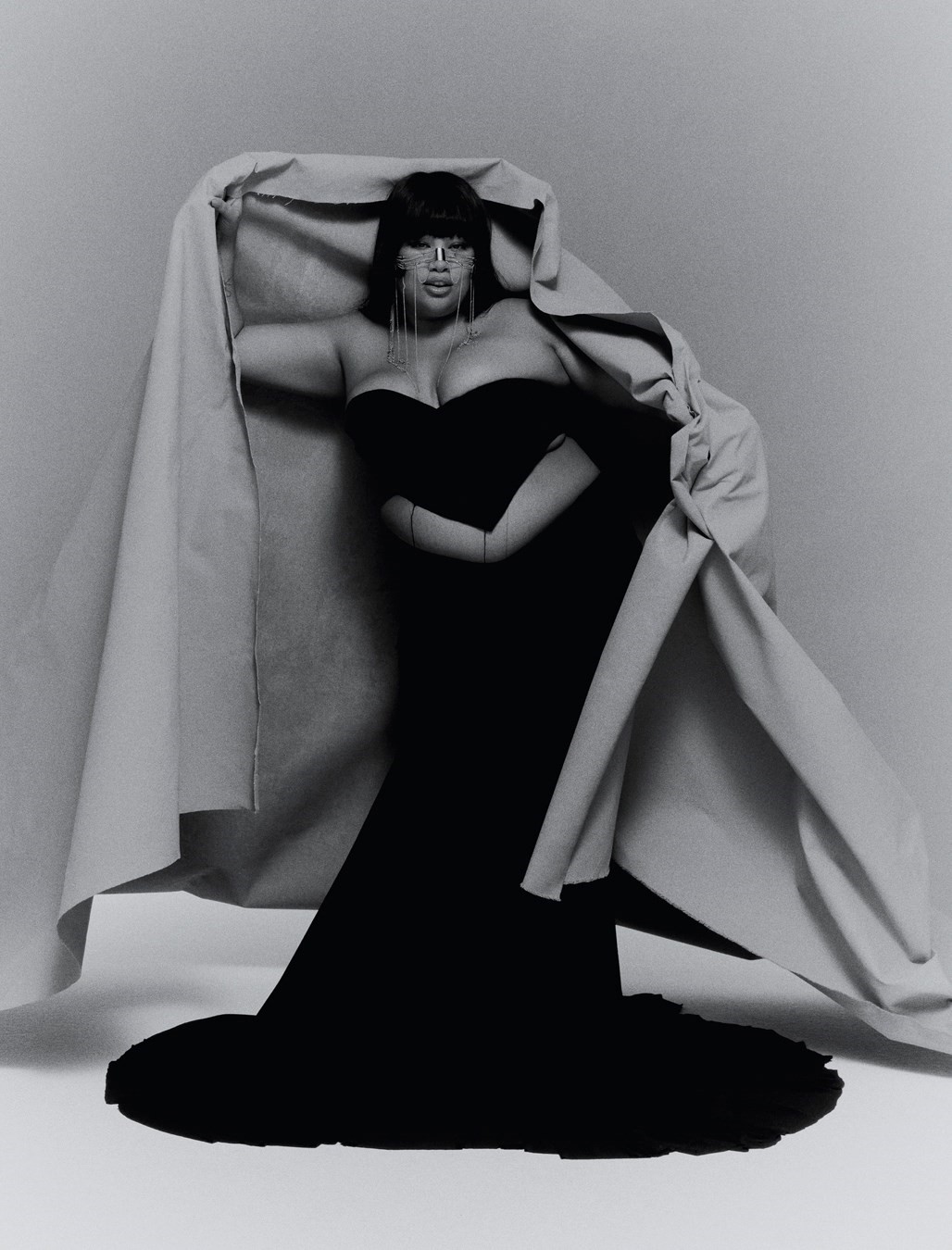
B: I love how genre-less it is. You mentioned listening to music while reading before – you’ve talked in interviews about wanting to embrace romantic novels in your music, like Tess of the d’Urbervilles by Thomas Hardy. Do you want to be the English rose? What are your favourite books? Do you like sci-fi?
S: Reading is where my relationship with music began, and where life began. I was a big reader as a kid and would lose myself in the characters, trying to find parallels with the outside world through the pages. It’s how I learnt to understand people and myself. And in the music I can be the English rose or the villain, or both those things at the same time. I can be all the different characters, but I love the anti-hero, and I love Tess because there’s no happy ending and there’s a realism in that. In real life it’s not about expecting a happy ending but appreciating the journey for the parts you didn’t expect. With sci-fi I prefer film. I read more romance novels. I like Anne Rice. The Vampire Chronicles, about love, sex and relationships, which I’m particularly enamoured of. I like the vampire metaphor in relation to love, especially between men, because that homoerotic portrayal was subversive in contrast to what I was surrounded by growing up. For me, anything that feels real must be real.
B: You’re not just a rapper and a singer but you become all these different characters – that feels like it comes from literature.
S: I think that’s why I’ve been enjoying performing so much recently. It feels theatrical, especially after the pandemic, doing the headline shows the way I had envisaged them for so long. I’m still learning how to be a performer, because until now my career has been in development.
“I love being perceived as a sensual and sexual person, because I am that and it’s good to celebrate that” – Shygirl
B: I thought about asking you about sexuality, but you get asked about that a lot. I like the word ‘sensuality’ better than ‘sexuality’, especially as a rapper or singer – it’s more interesting how you play with the microphone and the air around it, how you enjoy playing with your voice in the mic like that – you are a sensual orator!
S: I love being perceived as a sensual and sexual person, because I am that and it’s good to celebrate that. You should be able to talk about that and the rest, to acknowledge its presence and say that there’s more.
B: Talking of more, I wanted to ask you about humour. I sometimes find that people don’t notice when I’m taking the piss in my work – I see a lot of humour in your stuff, for example the cover of your EP Alias, which is hilarious. Do you think there’s humour and do you think people get it?
S: It’s half and half – people do and don’t, and I like that. The message is there for those who are open to receive it. But I’m always laughing at myself, at art in general. I find it funny that people would listen to me or give me space, that my expression has a platform. So it’s important not to always take yourself too seriously. Especially with Alias – the artwork was a commentary on coming out of lockdown and putting myself in this space where I would be perceived, putting myself up for consumption. I need to find it a little bit funny to be able to do it.
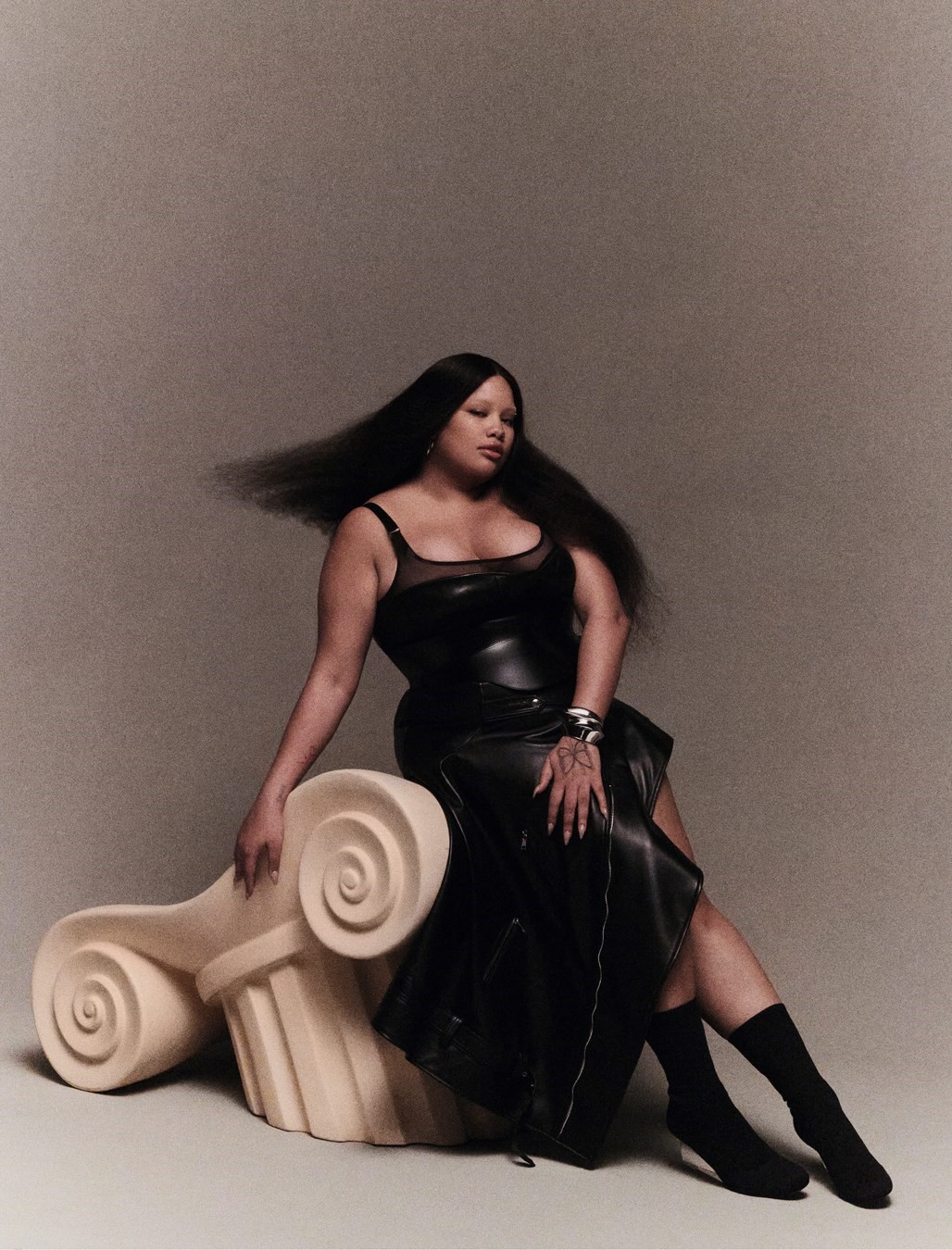
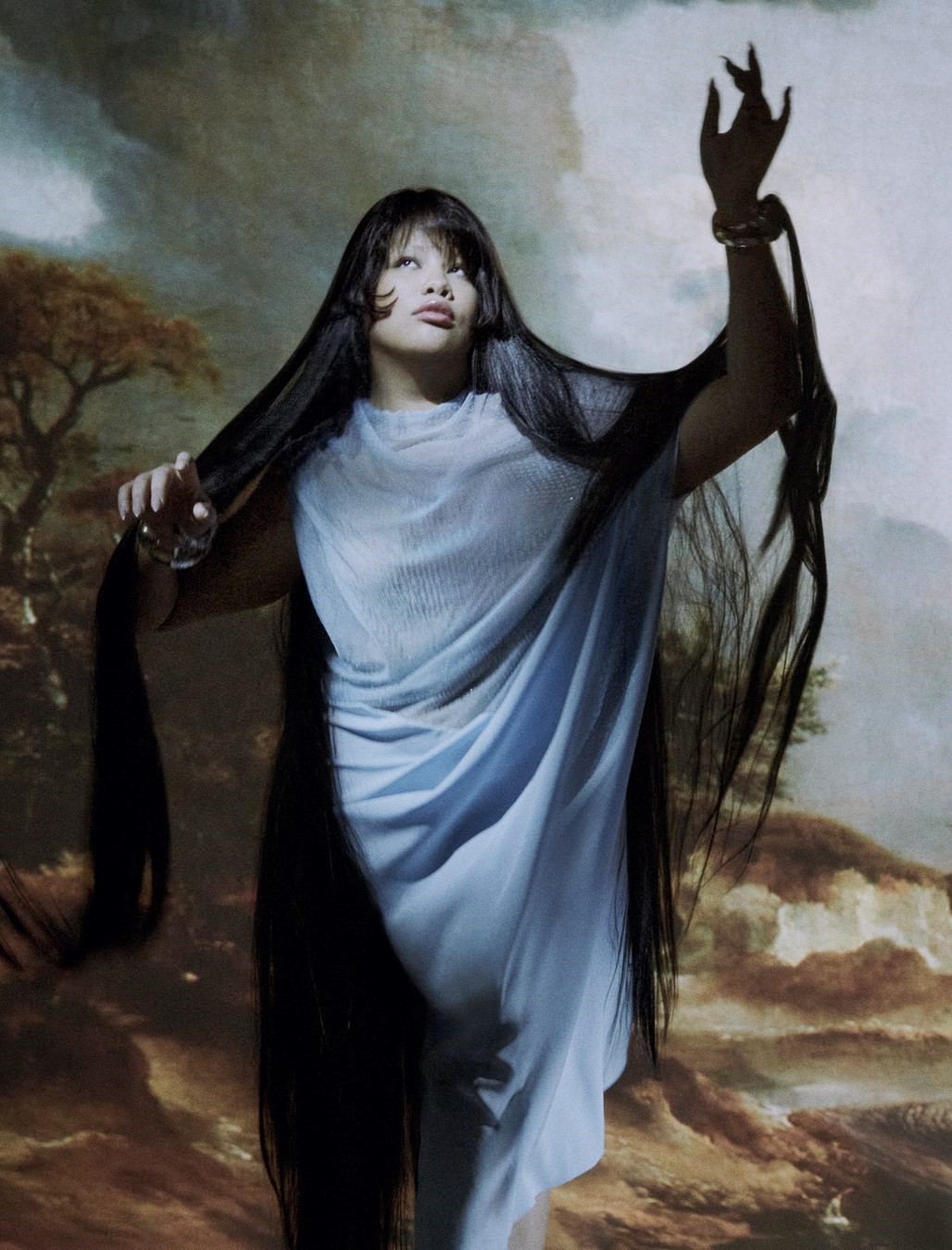
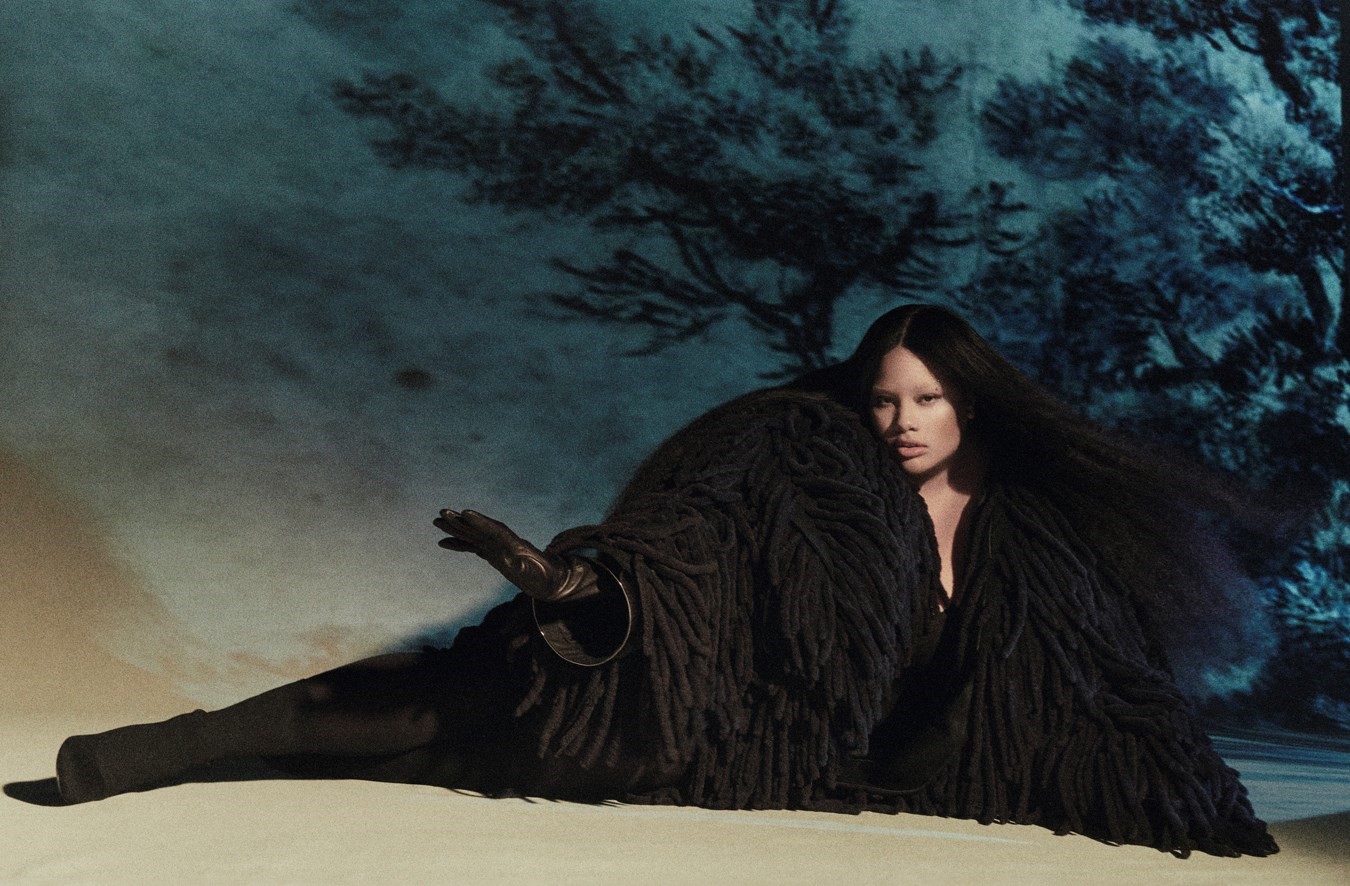
B: How does it feel to be an emotional documentarian? I was your age when I realised that was my main muscle, and it came as a surprise. Feelings are like the weather and when you write you have to be so aware of your state of mind. Is it important to get rid of old emo luggage so you have space to think and feel?
S: Totally. I am really grateful because I’ve always been someone who feels things very deeply and is ruled by emotions – they determine what I should or shouldn’t be doing, even who I should be. I’ve always been quite self-reflective. Now I have a conduit for all those emotions and reflections and a way to validate them – no matter what I go through, how I feel, everything has a place and a purpose now because it means I can create something, grow, progress. It’s got a quantifiable product. This album was a space where I was pushing myself to be more vulnerable and reveal more things, not just to an audience but to myself.
B: If you take tracks like Rude from Cruel Practice, or anything from Alias, they are quite hard and then there’s a transition into the sensitivity of Nymph. Do you think it’s important to defend your sensitive side and your harder, techno side?
S: After the first two EPs, I’d started to understand the impression I was making and I was like, “OK, but there was so much that came before for me to get to this bravado I’m giving you – I already had to go through a sensitive space, I just neglected to inform you of it.” Really I just wanted to introduce myself. But in order to give a bigger picture of who I am, I needed to go back to the start of my process, the more vulnerable side. I don’t know if it was conscious or just following the thread of my interest. My interest must be piqued before I can consider the writing as interesting to someone else. I’ve never been good at writing diaries because it feels repetitive. I need to turn over the event in a way that feels fresh to me, to present it like I’m experiencing it again for the first time – that’s the clearest way I can think of my process.
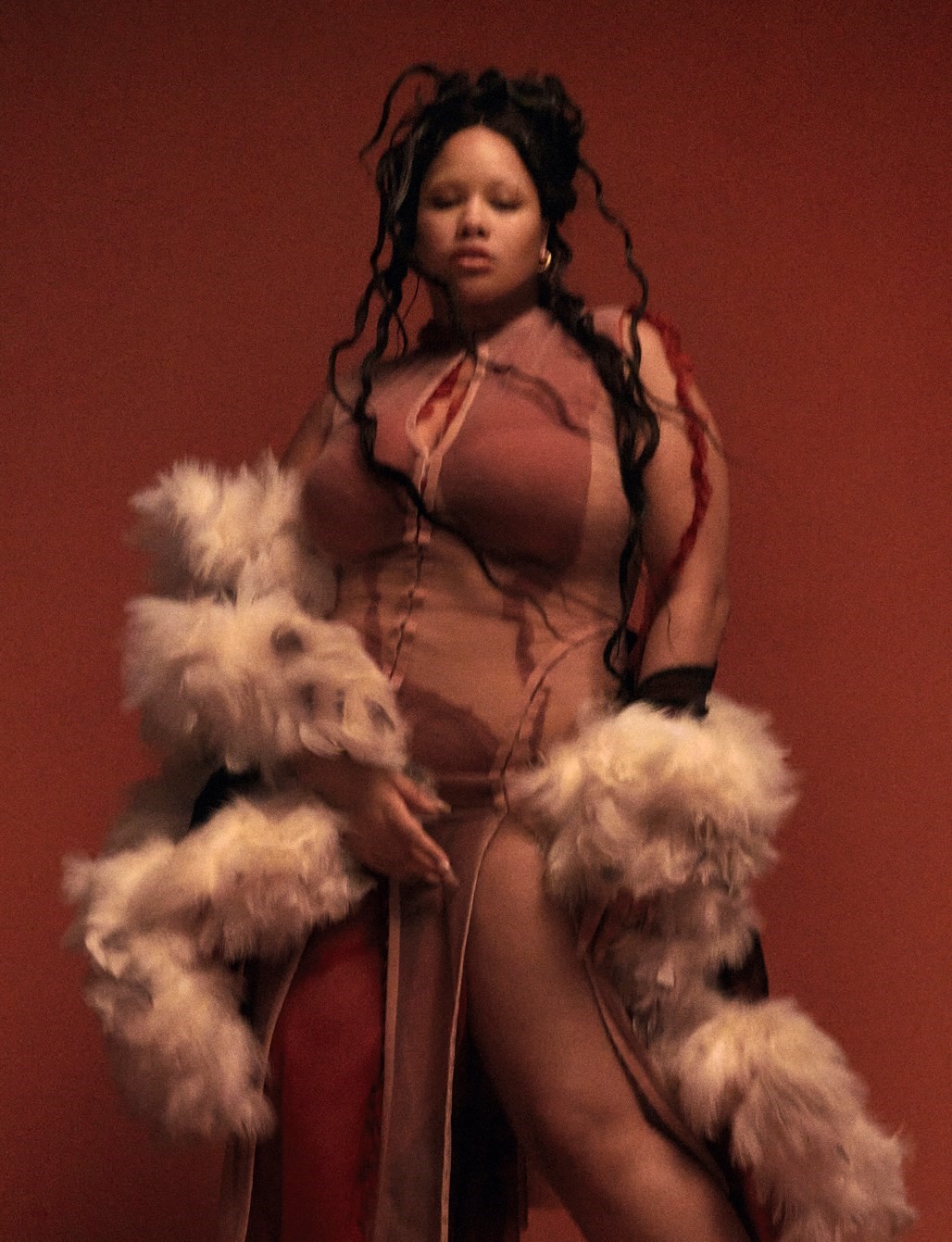
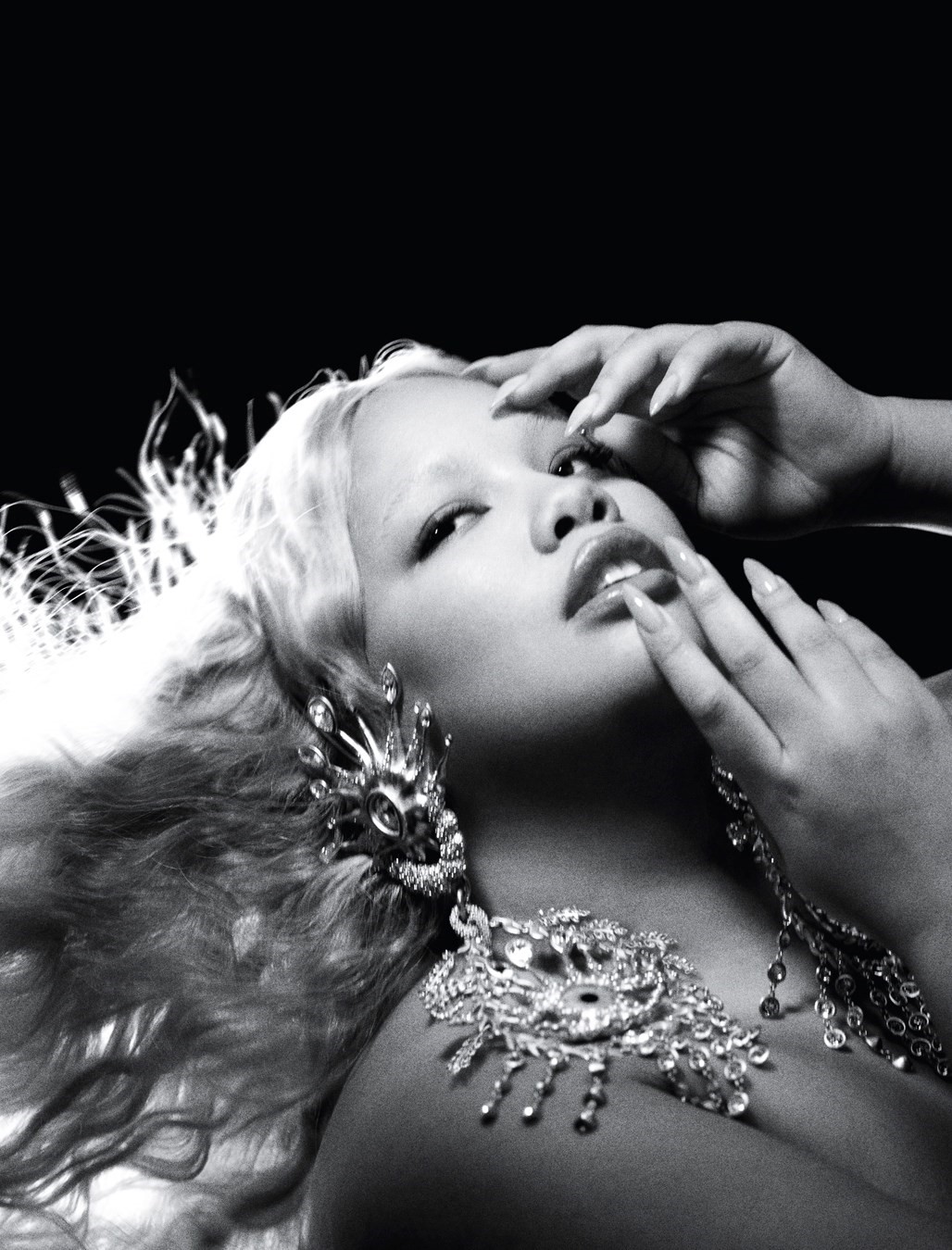
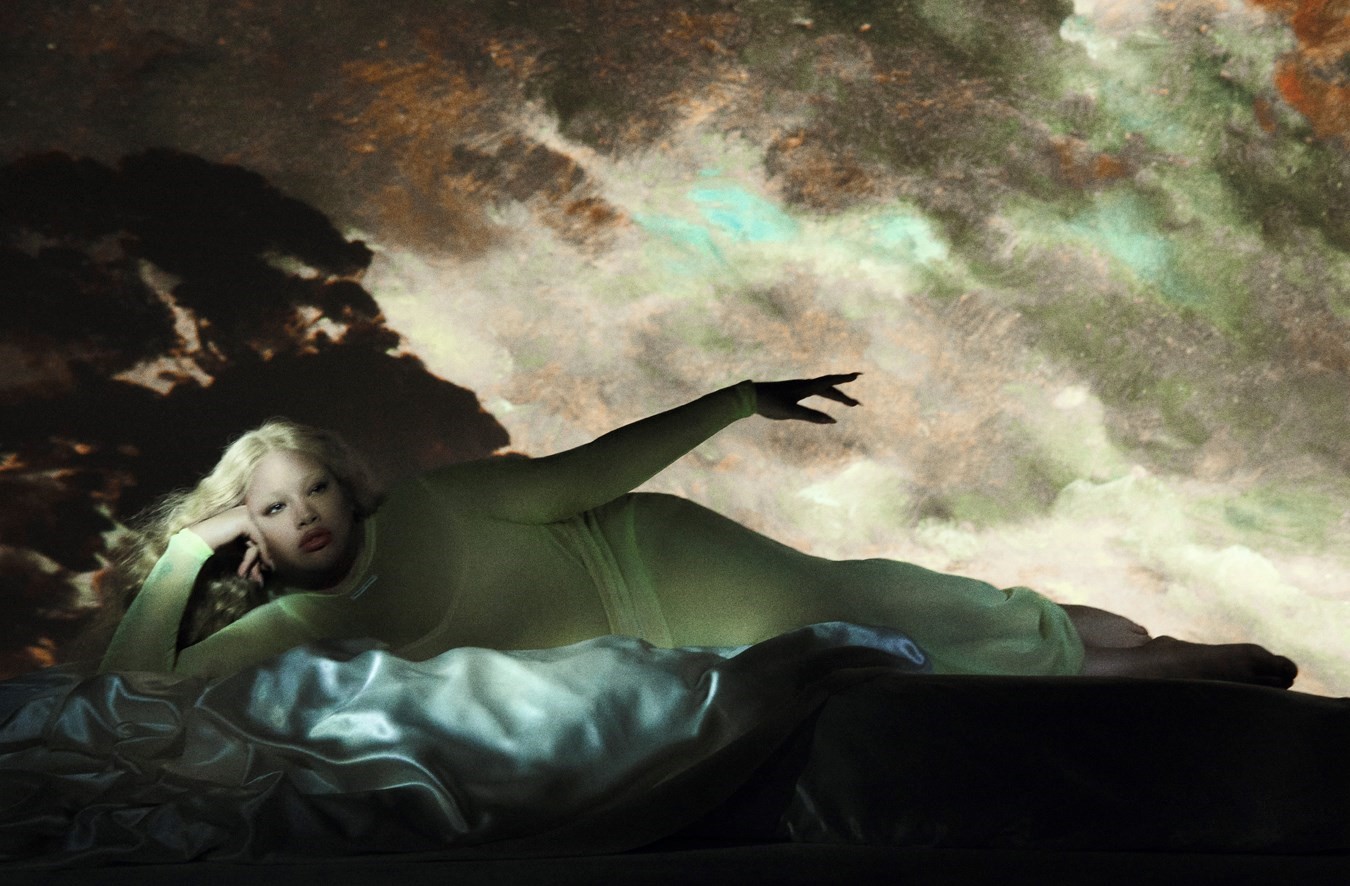
B: I’ve been around for longer – a squillion years – but I can think of moments when it felt very natural, that bravado. For Homogenic I did a whole tour where my hubris was on screen and then I got so bored of it after touring that I naturally collapsed into the opposite with Vespertine, which was very gentle and everything was whispered. Sometimes you naturally go to the other extreme.
S: The presence of work before me – like yours and the many other artists who have inspired me – helped me relax because there’s this great conversation already and I’m just picking up where they left off. There’s always something that feels slightly familiar about the work because it’s all been done through the ages – tropes like the nymph. It’s fun to add to that and modernise it each time.
S: In the Ovule remix there’s the line, “I can’t even hear you calling.” It means, “I can’t even perceive the scope of your love, it’s too vast for my perception.” With my songwriting I echo the mood of a period I’m living through, and working on your remix I was in this same state of mind – so they speak to one another.
B: We connected on our expectations of love – not to get stuck wanting something particular from someone, to allow them to be generous in their own way.
S: It’s unique that we’ve been able to have the conversation before we even met, with our own work speaking for itself, but then to continue that in working together. It amplifies what music means to me – a beautiful space where we can extend the message of who we are as individuals.
“I have been proudly calling myself the David Attenborough of DJs. I’m more like a musicologist” – Björk
B: Exactly. I still feel like I’ve got 1,000 songs to write and it’s never done – it’s so vast, it’s exciting. I wanted to ask you about balance in musical collaborations. I really enjoy when there’s an inner formula – you’re giving each other very opposing things, you equal giving with what you take. Is that important to you?
S: I hate working alone because my introduction to music came through collaboration and I know how good that feels. I love how I can have an idea in mind or something I’m trying to unearth and someone else understands me, or doesn’t but we reveal something together as we go along, like archaeologists.
B: We have also both taken part in running our own labels, which for me removed that knight-on-a-white-horse expectation that many musicians have of labels.
S: I really like to understand things. I hate going in and having someone explain everything. I’d rather find something out myself. I think that was instilled in me by my dad, because if I asked him a question he’d be like, “Look it up.” People were talking to me about signing and I was like, “I don’t even know what a label does. How do I know they are helping me correctly?” I was fortunate to be surrounded by people like Sega and Coucou Chloe making music. We were doing it naturally and by ourselves. We thought, “Why don’t we put a name to this?” We made a label even though we didn’t know the final destination, but with an intention – to support and nourish each other and create space for other people we want to share our energy with.
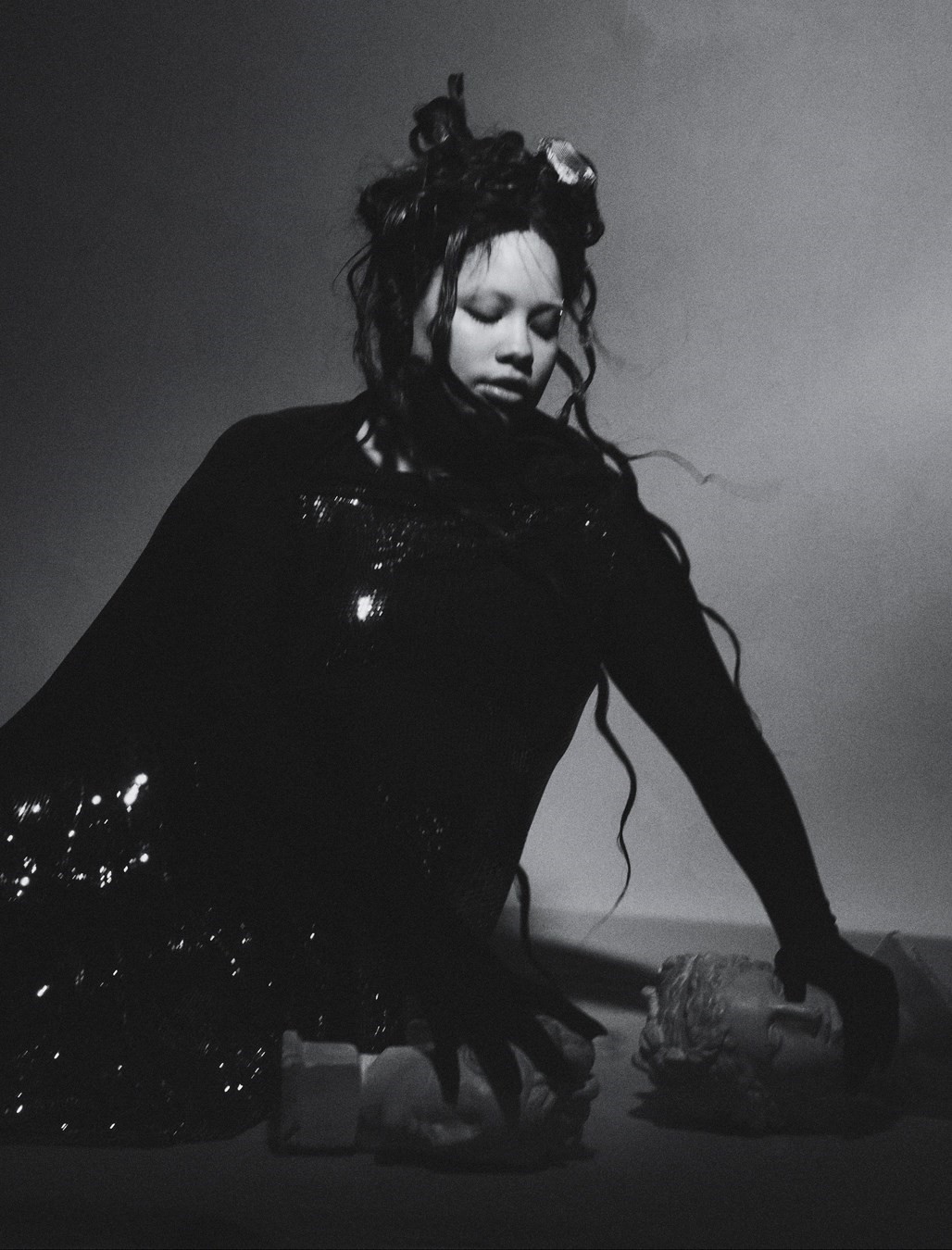
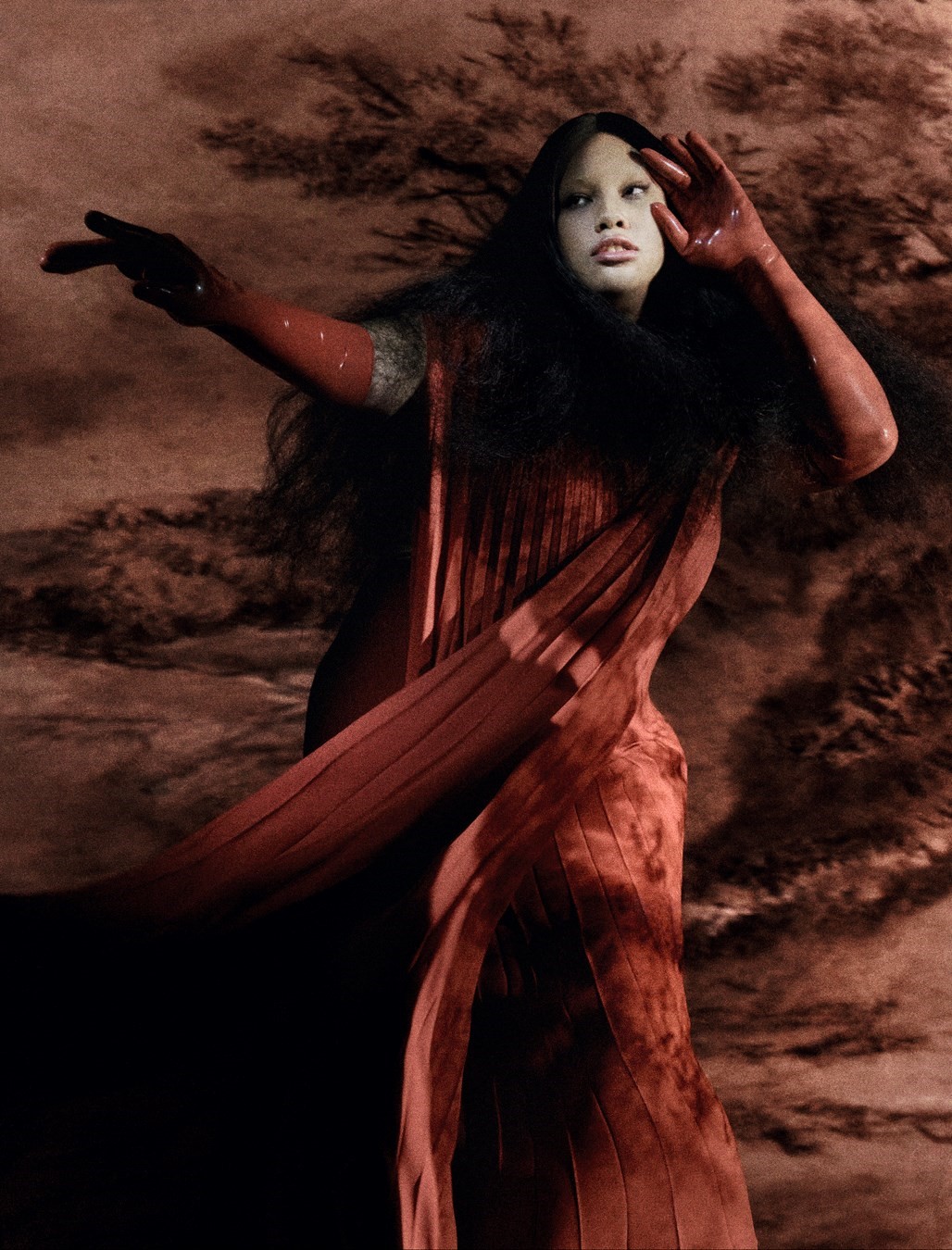
B: Both our mothers were 19 when we were born. I wonder if that explains the self-teaching, having younger parents? What role do you play in your family – pessimist, optimist, clown, peacemaker, realist, dreamer? Or all the above?
S: There’s something unique about having that space to grow up with your parents when they’re so young. I have a younger sister with a 15-year age gap and I see my mum very differently from how she sees her. Naturally my mum has more experience now, but I’m grateful for the parent she was to me because I love who I am today. I am a big personality within my family – I’m a realist but my reality could be interpreted as someone else’s dream, so there are aspects of dreamer and peacemaker. I’ve had to give advice to my parents on things that I have no real experience of but have empathy for and over time have been proven right – that’s changed how I move through life, because that validation gave me confidence in giving advice to friends. I don’t mind being wrong and invite that conversation. I think that’s why I’m not shy of starting a conversation generally.
B: What kind of landscapes influenced you spatially growing up? I feel it in you as a musician – the urban space but also a lot of nature – it’s a feeling.
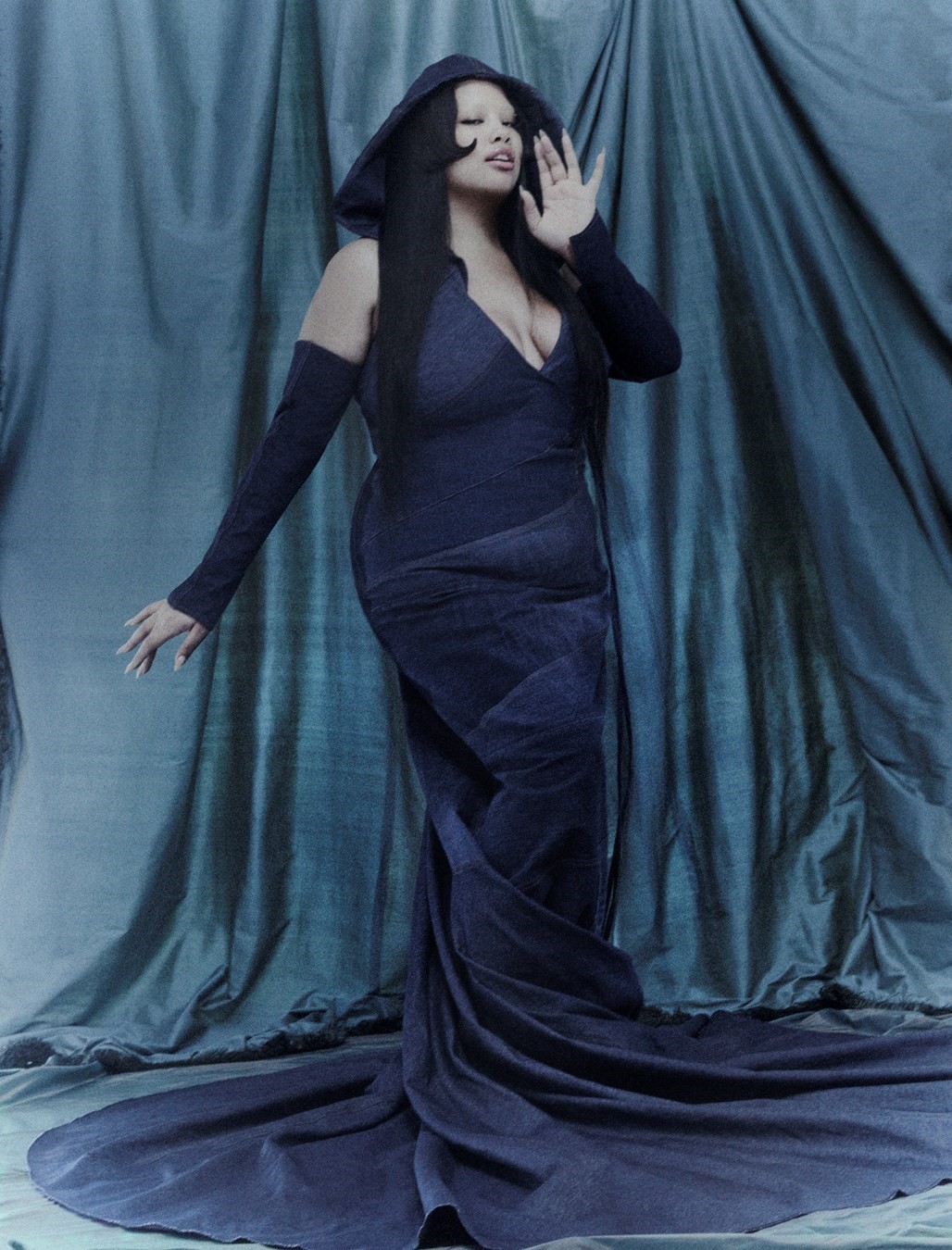
S: It’s free to be outside and, coming from a not-very-wealthy background, I was always encouraged to make use of what was there. I spent every summer in south Wales and my aunt lived in Kent, so we’d visit her. My brother and I would play in the woods and my mum wouldn’t be able to find us. For me, nature represents openness, wild freedom. The city felt predictable and small, weirdly – the countryside felt big and mysterious, full of possibility. As I started making music, I was visiting my grandma in the Caribbean more – that was a place of reflection and mystery. It humbled me and reminded me that my world is not the only world. It was vital in my writing process to have that reflection in those spaces, to leave space for the mystery of interpretation. I think that’s how I was inspired by nature. There’s spontaneity, you can’t control every aspect.
B: That’s beautiful. It’s such a fresh angle you bring as an orator and a confident owner of your passions and your existence. I can’t wait to see what you do next.
Hair: Ali Pirzadeh at CLM. Make-up: Vassilis Theotokis at MA+Talent using PAT MCGRATH LABS. Manicure: Yuika Yonehara at Haco Hair and Nails. Set design: Afra Zamara at Second Name Agency. Choreography: Eric Christison at PARENT. Digital tech: Morgann Eve Russell. Photographic assistants: Sinclair Jaspard Mandy, Joe Petini and Max Glatzhofer. Styling assistants: Honor Dangerfield 362 and Florence Thompson. Hair assistant: Tommy Stayton. Make-up assistant: Naomi Nakamura. Set-design assistant: Tatiana Rutherson. Executive Producer: John Haywood. Production: Mini Title
This story features in the Spring/Summer 2023 issue of AnOther Magazine, which is on sale internationally on 23 March 2023. Pre-order here.
